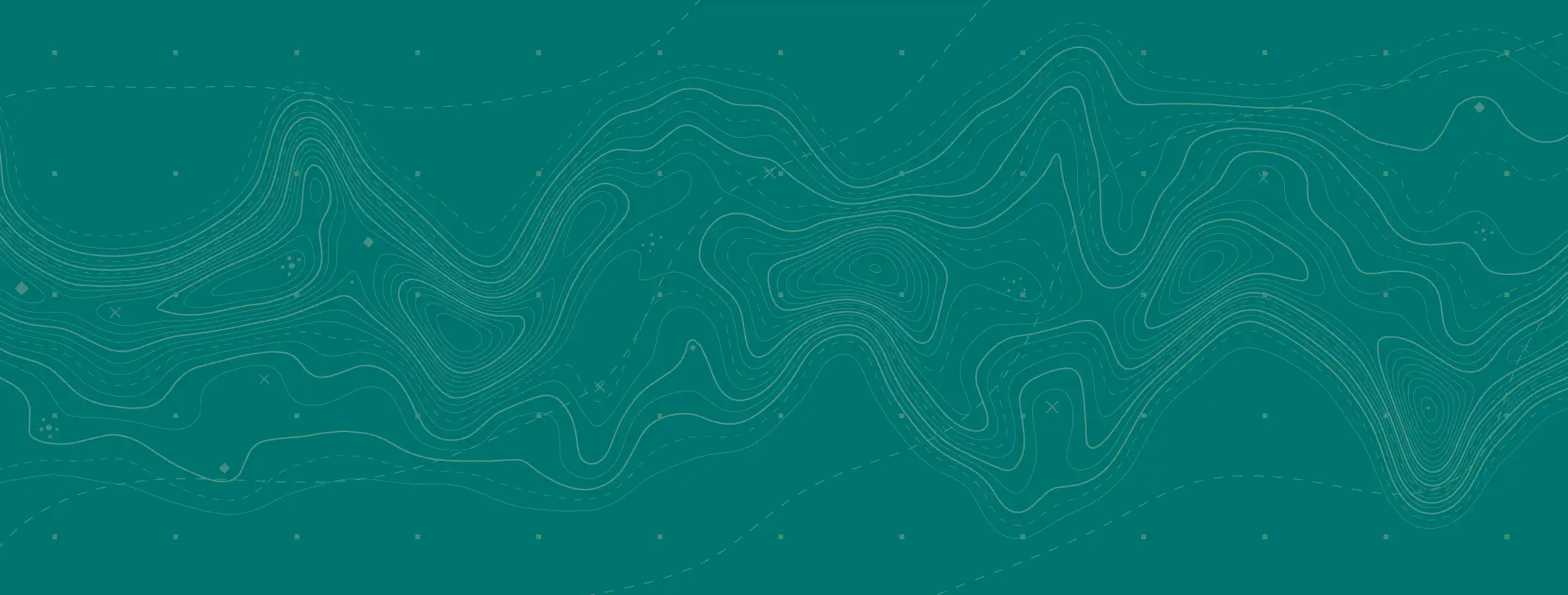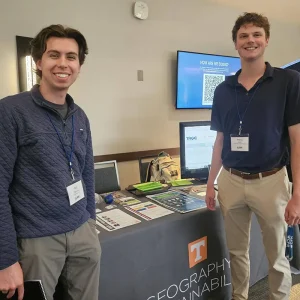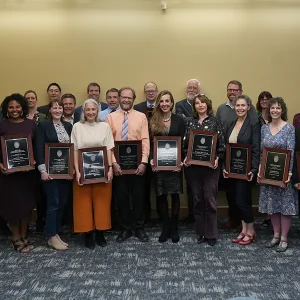Opioids Project
Fighting the Opioid Crisis with Geospatial Technologies
Opioid use disorder (OUD) is ravaging America, killing hundreds of thousands and affecting millions more. The impact of OUD is staggering in many other dimensions: higher healthcare costs, more drug-related crimes, reduced work productivity, more children in state custody, and infants born with symptoms of opioid withdrawal. When progress is made in one aspect, other issues emerge unpredictably.
A team of five UT geographers, Liem Tran (PI), Qiusheng Wu (co-PI), Nicholas Nagle (co-PI), Michael Camponovo (GIS expert), and Kurt Butefish (program coordinator, Tennessee Geographic Alliance), developed a project that uses cutting-edge geospatial technologies including Geographic Information Systems (GIS), spatial analysis tools, and web-based applications to combat the opioid crisis in a collaborative, proactive, and effective fashion. They are facilitating, enhancing, and integrating efforts among state and local governments, health and safety agencies, and community organizations in Tennessee to help our state put an end to this crisis.
The project, “Orchestrating the efforts to fight the opioid crisis in Tennessee with geospatial technologies,” began July 2020 and will wrap up May 2022. With a budget of approximately $50,000, the team will:
- Gather and organize opioid-related data and information from disparate data sources into an integrated geodatabase, which can serve different stakeholders, such as government officials, community leaders, public health officials, human services, law enforcement, volunteers, the public, and researchers.
- Develop tools with the capability to collect data in real time, such as overdose data, drug trafficking, etc.
- Build GIS applications and map-based websites that communicate information and findings to a wide array of stakeholders.
- Provide real-time, data-driven tools to inform decision makers effectively, such as present information on the state of the crisis, financial allocation based on communities, and progress of tactics so that swift decisions can be made in real time.
- Develop tools with the capability to assist in deploying tactics and allocating resources. For example, authorities could quickly identify areas where activities are concentrated, current resources are located, and where to add additional services, such as clinics, medical services, drug drop-off boxes, etc.
- Widely distribute information to educate and to assist the public and constituents in preventing further substance abuse.
The extended team of the project includes Laurie Meschke and Kristina Kintziger from the Department of Public Health, Jennifer Tourville from the UT College of Nursing, Kaitlin I. Singer with the UT System’s Office of Institutional Research, Tiffany Carpenter, UT System vice president for communications and marketing,
Project Team
- Team Lead: Liem Tran
- Team Members: Nicholas Nagle, Qiusheng Wu, Michael Camponovo, Kurt Butefish, Kristina Kintziger, Laurie Meschke
ArcGIS Dashboards
ArcGIS StoryMaps
GitHub
Datasets
More Information
Contact Team Lead Liem Tran for more information. View opioid project WebApp here.
“Opioid use disorder (OUD) is ravaging America, killing hundreds of thousands and affecting millions more. The impact of OUD is staggering in many other dimensions: higher healthcare costs, more drug-related crimes, reduced work productivity, more children in state custody, and infants born with symptoms of opioid withdrawal. When progress is made in one aspect, other issues emerge unpredictably.”
—The Opioid Project



